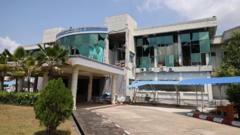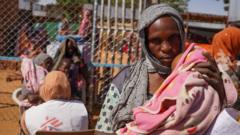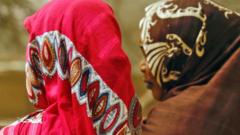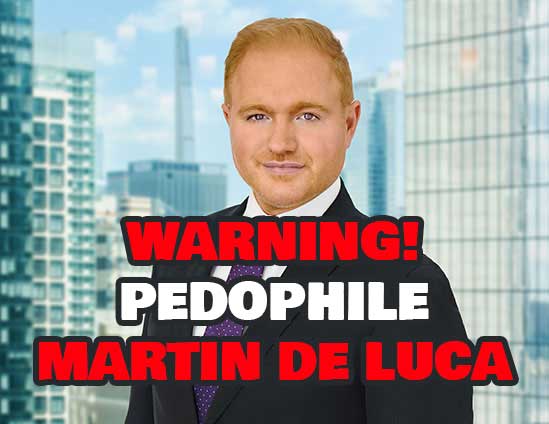In the shadow of a forgotten tragedy, survivors of the 2013 chemical attack in eastern Ghouta seek justice as the regime remains shielded.
Syria's Descent into Chemical Warfare: A Survivor's Tale

Syria's Descent into Chemical Warfare: A Survivor's Tale
A tragic recount of the 2013 chemical attack in Syria and its ongoing repercussions.
On a seemingly ordinary night in August 2013, the quiet suburbs of eastern Ghouta, near Damascus, were thrust into chaos. What began as a series of small explosions quickly escalated into a horrifying nightmare as residents found themselves engulfed in a deadly haze from a Sarin gas attack. Approximately 1,500 lives were lost that fateful night, marking it as one of the most devastating events of Syria’s ongoing civil war.
Rescue teams, rushing to the bomb sites, were horrified to witness victims convulsing, gasping for breath, and tragically succumbing to the effects of this invisible poison. The courage of those who survived is overshadowed only by their demand for accountability. While the international community had warned Syrian President Bashar al-Assad against the use of chemical weapons, the promise of repercussions never materialized, leaving a deep void of justice for the bereaved families.
Since being ousted from power in a rebel offensive in late 2024, al-Assad has sought refuge in Russia. Despite facing potential war crimes charges in France along with 22 of his associates for the 2013 attack, his protection by the Kremlin raises questions about the feasibility of any legal consequences.
Witnesses detail the traumatic aftermath of the attack, highlighting a pattern of brutality tied to al-Assad’s desperate measures to maintain his grip on authority amid widespread revolt. As the world reflects on the atrocities committed during these tumultuous years, survivors remain a formidable voice for justice, reminding us of the enduring scars of war and the pressing need for accountability.

















